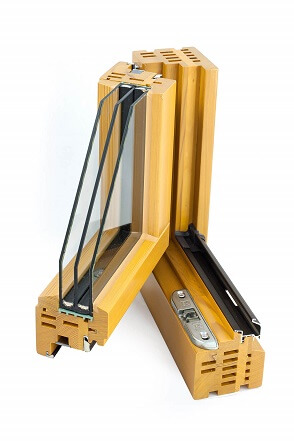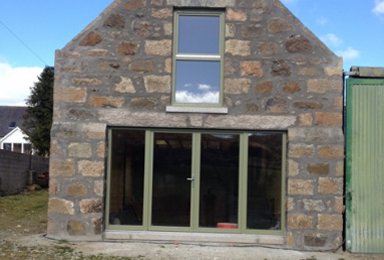Guide to Buying Wooden Windows
You are likely reading this article because you find yourself in a situation where you need new windows.
This might be for a new build property you are self building, replacement of tired or even rotten existing windows, or you could be a builder who has a client who would like some help.
In this series of articles, we take a step by step approach to determine the options and where to start. In each blog, we will look at a product group, the relative price point and merits of each. This time, we will discuss buying wooden windows.
Timber Windows
Wooden windows are definitely worth considering as they are sustainable, naturally insulating and also, if properly cared for, can last a long time.
Wood windows come in either softwood or hardwood. And many of the options will be made from FSC timber (Forestry Stewardship Council), which offer regulation of the source of the timber to ensure that the source is managed in a sustainable manner. For many hardwood windows, this is important. We are passionate about using sustainably-sourced timber at Enlightened Windows – having visited many of the areas in South East Asia and South America, where ruthless and unregulated logging of dense tropical forest is still happening.
Hardwood windows that use properly sourced timber are good news! Hardwood is more dense than even slow grown pine and naturally has a propensity to absorb less moisture and humidity from the atmosphere. When buying wooden windows, ask your supplier what density (kg per m cubed of timber) is used to make their windows.
Density and Moisture
In Germany, this is a commonly stated statistic in product marketing. In the UK, it is rarely stated because most manufacturers and re-sellers use a cheap lightweight timber which, on the face of the product, is difficult to spot. Ask the question. Likelihood is that most won’t know! A softwood of above 450Kg per m3 is a dense slow grown product and is good news. Hardwoods can be up to 650kg per m3. Generally, the denser the wood, the less likely it will readily absorb moisture.
Most timber windows will absorb some moisture regardless of age; this is normal and not a problem. It is how the windows are designed, as the timber substrate was a living material and even once made into a window will continue to breathe – keeping a harmony with the humidity of the outside environment.
Why is this important?
- A slight expansion of the timber – the sash can stick in the frame. This is particularly an issue on larger units, as a 0.3% expansion on a 1200mm wide unit can represent a 3.6 mm expansion of the frame. Softwood’s propensity to absorb moisture is higher than hardwood’s. Cheap wooden windows usually use low density timber and non-microporous paints.
- Modern paint finishes are often made from microporous paints: allowing moisture trapped in the wood to escape. This is a good feature. Non-microporous paints won’t let moisture out and, when moisture finds its way into the window, the only way out is for the paint to be blistered. If you aren’t sure, remember to ask when buying wooden windows. Non-microporous paints should be avoided.
- If a window is poorly maintained and water is regularly driven to bare timber, then fungal decay can start.
- Water in timber + warmth = fungal decay and onset of rot (wet or dry). Usually, the first signs are: blistered paint and softening of the timber. Once set in, this can be very difficult and expensive to repair.
- Excessive moisture in the frame will cause the sealed glazing units to be affected and rupture. You may see misting of the units or condensation in the panes. This usually means that the insulating gas in the glass is long gone, and the glass has failed. Simply replacing is a short term cure – as the real issue is the moisture in a deteriorated frame.
When timber windows absorb moisture a few things happen:
What to look for when buying wooden windows
- Multiple seals made from butyl rubber
- Tilt and turn mechanism
- Check seals are welded and continuous on the corners (mitres) if the seals are just roughly pushed together then avoid; they won’t have the all critical airtightness (that is the buzz word in achieving energy efficiency).
Dense softwood: ask for over 350Kg m3 as a minimum - Microporous paints
- Engineered wood (rather than a window made from one solid timber piece of as grown timber)
- Quality hardware and hinges. The typical Y hinges used on many cheap windows won’t tightly pull the sash into the frame and themselves can cause water within the frame – thus accelerating deterioration.
- Quality workmanship – particularly on the joints of the window. Visible timber end grain is REALLY bad news. Even if this is painted, if this gets wet, it is the most likely place that water can be absorbed by capillary action into the window. Wood + water = rot eventually.
At Enlightened Windows, we supply a good range of quality wooden windows that will last and are quality assured.
Why not take a look at our range of German wooden windows.
Contact us!
For any questions about our products and services, or to get your quote,
please get in touch by phone, email, or using our in-browser contact form!
Leamington: 01926 935 607
London: 0203 633 0476
E-mail : sales@enlightenedwindows.co.uk
Contact Form: Contact Us










